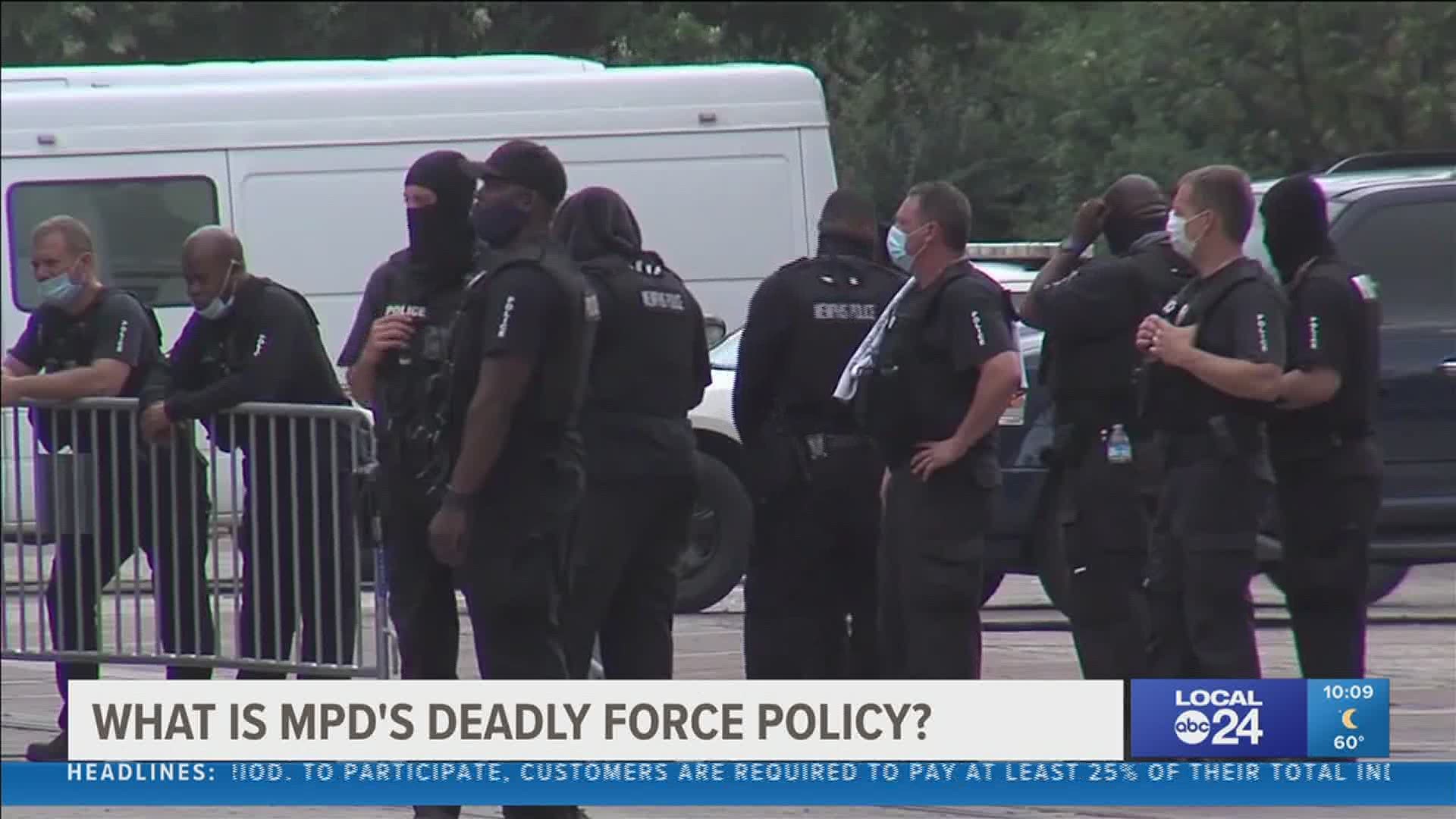MEMPHIS, Tenn. — A major point in former Minneapolis police officer Derek Chauvin's murder trial, for both the defense and prosecution, is the "use of deadly force" policy that Minneapolis police officers are expected to follow.
Those policies vary from city to city, so Local 24 News took a look at where the policy stands in Memphis.
MPD lists different "types of force" in its Response to Resistance policies and procedures. Those listed include deadly, necessary, excessive, and unnecessary.
- "Deadly force:" "That amount of force that is sufficient to, intended to, or may be reasonably expected to inflict serious bodily injury and/or death. This includes the discharge of any firearm at, near, or in the direction of any individual."
- "Necessary force:" "Necessary force or “reasonable force” is force that can be reasonably used by an officer to accomplish their duties in a timely manner; force that keeps both the officer and citizen as safe as possible. Members are permitted to use whatever force is necessary and reasonable to protect others or themselves from bodily harm."
- "Excessive force:" "Excessive force is defined as the amount of force which is beyond the need and circumstances of the particular event, or which is not justified in the light of all circumstances."
- "Unnecessary force:" "Unnecessary Force is that force or violence that is unprovoked, needless, or not required when making an arrest or dealing with a prisoner or any person. Officers shall NEVER use Unnecessary Force."
"Unnecessary" and "deadly" forces have particularly sparked reform in law enforcement across the nation.
What's come to be known as "8 Can't Wait" are eight policies endorsed by a group concerned with ending police brutality. Some of those policies have already been put in place at MPD, but following George Floyd's death, the department has adopted all of them.
The eight policies include a ban on any kind of chokehold, using de-escalation tactics such as verbal commands, exhausting all alternatives including a verbal warning before shooting at a civilian, officers must intervene if another is using excessive force, no shooting at moving vehicles unless deadly force is authorized, the officer must use their training and best judgment when escalating force, and they must document any time force is used.
Officers also risk being reprimanded if they do not respond to an "excessive force" complaint. Three officers were disciplined for not responding to a complaint by a protester during last May's protests against police brutality.
According to MPD's 2019 Inspectional Services report, excessive force complaints went up by two between 2018 and 2019. The data for 2020 has not yet been released.

